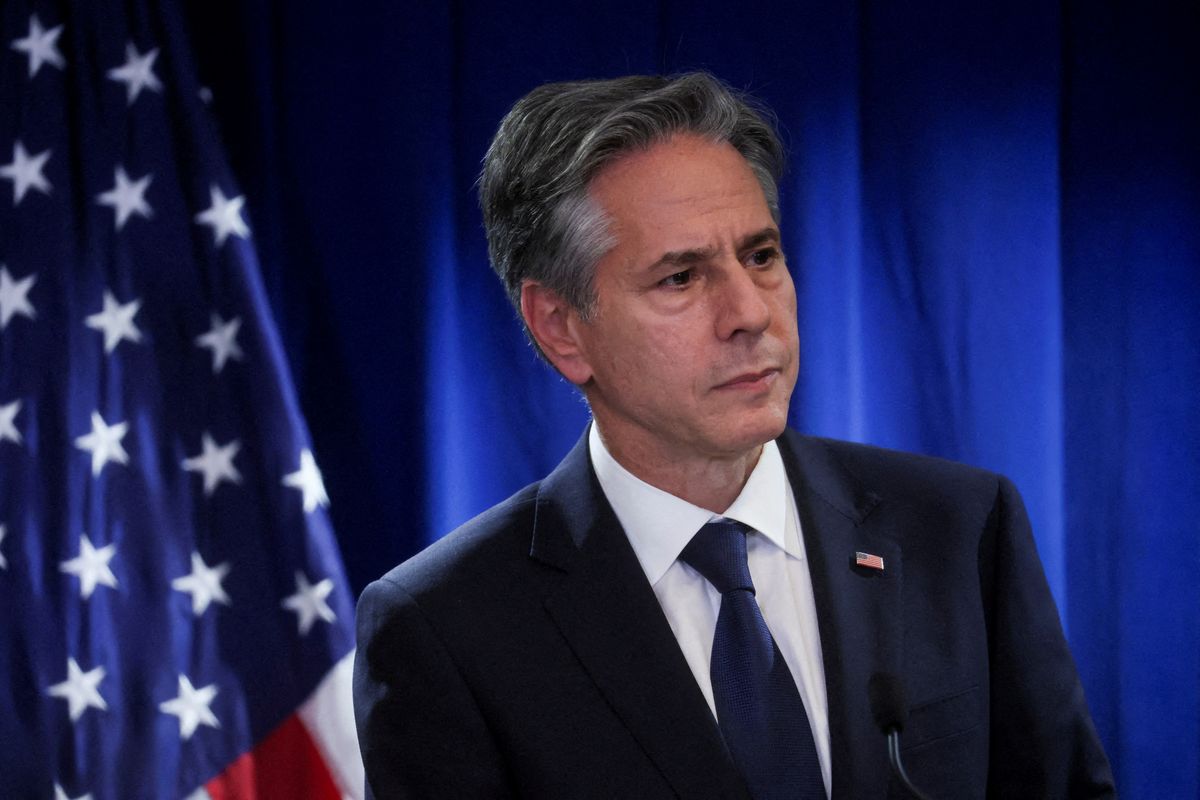US chip executives meet with Biden officials
On Monday, top execs from US chip companies met with officials from the Biden administration.

A few minutes every morning is all you need.
Stay up to date on the world's Headlines and Human Stories. It's fun, it's factual, it's fluff-free.
The backstory: Last August, the CHIPS and Science Act was passed in the US, which set aside US$52 billion for domestic semiconductor manufacturing. This move was supported by major players in the chip industry like Taiwan Semiconductor Manufacturing Company (TSMC), Intel and Micron, who all committed to building semiconductor plants in the US. Then, last October, the Biden administration introduced new export rules on advanced chips and the equipment used to make them to strengthen the US chip sector and slow down China’s tech advancement. Discussions within the Biden administration have been swirling around putting even more restrictions on chip exports to China.
The thing is, the chip industry isn’t really in favor of these additional restrictions because companies don’t want to miss out on the money they’re making in China. The country spent US$180 billion on semiconductors in 2022, which makes up more than a third of global chip spending, according to the Semiconductor Industry Association (SIA).
More recently: US Secretary of State Antony Blinken visited Beijing last month and met with China's President Xi Jinping. Xi reportedly told Blinken that China wasn’t looking to replace the US and that the country respected US interests, but China wanted the same sort of respect in return. He expressed that the world needs relations between the two to be stable.
Earlier this month, China announced export restrictions on germanium and gallium, which are key components in producing chips and other tech. Exporters will now need licenses to export these metals, and they’ll have to list who’s importing them and what they’re using them for. China said the decision was because of national security concerns, but a lot of people see this move as a response to US efforts to curb China's technological advancements.
The development: On Monday, top execs from US chip companies met with officials from the Biden administration, including Blinken. They wanted to discuss these potential additional restrictions, and one of the most influential semiconductor lobby groups is urging the administration not to put any more curbs in place. According to insiders, these chip company execs also chatted with reps like Commerce Secretary Gina Raimondo, National Economic Council director Lael Brainard and National Security Council director Jake Sullivan. The discussions covered things like industry dynamics, supply chains and the challenges faced when doing business in China. They also spoke about the CHIPS Act government subsidies for chip companies and not shutting those players out of the profitable Chinese market.
Key comments:
"Our actions have been carefully tailored to focus on technology with national security implications, and designed to ensure that US and allied technologies are not used to undermine our national security," said a White House National Security Council spokesperson.
"This move will have a limited impact on global supply given the targeted scope," said Eurasia Group analysts Anna Ashton, Xiaomeng Lu and Scott Young in a note few weeks ago, referring to China’s export restrictions on germanium and gallium. "It is a shot across the bow intended to remind countries including the United States, Japan and the Netherlands that China has retaliatory options and to thereby deter them from imposing further restrictions on Chinese access to high-end chips and tools."
"We seek a healthy economic relationship with China: one that fosters growth and innovation in both countries," said US Treasury Secretary Yellen in April.
“America is going to lead the way in microchip manufacturing,” said US President Joe Biden on Twitter last year.
“The Biden administration, and like the Trump administration before them, is justifying these controls on the basis of national security,” said Nick Marro, the lead analyst for global trade at the Economist Intelligence Unit, saying that US chip firms are facing an “uphill battle.” He added, “That rationale will always be tricky for companies to argue against, particularly these days, as US concerns around trade, technology and Taiwan increasingly characterise the downward trajectory in US-China relations.”




Comments ()